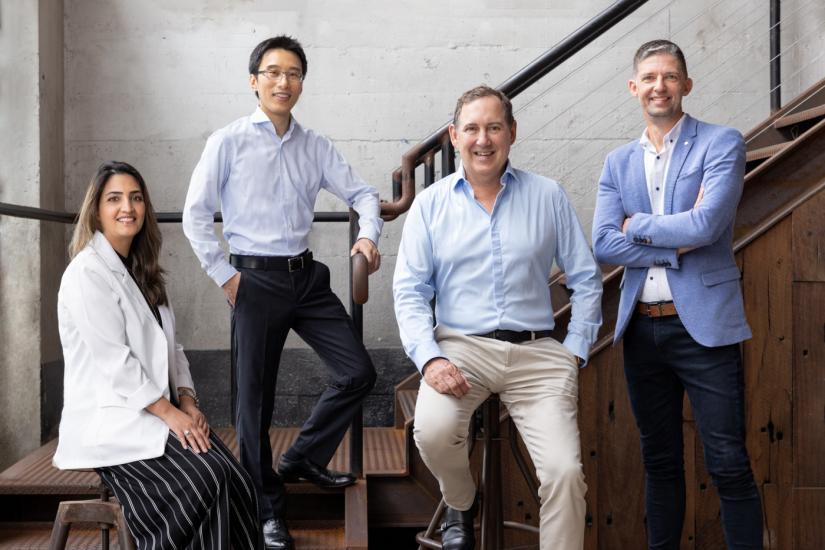Australia is no stranger to cyber-attacks. With many companies storing personal data including copies of passports and licenses in the one place, hackers have a growing array of alluring targets.
With one attack, a hacker can steal thousands of records which can fetch up to $5000 AUD each on the black market. But it doesn’t have to be like that.
Memoona Anwar’s research set out to change how our personal data is processed and stored.
The resulting IDUX Ecosystem was developed while studying for her PhD at UTS and implemented during an industry internship with cybersecurity company Data Zoo.
The pioneering technology uses decentralised blockchain technology to store an individual’s data, making it more difficult for hackers to access.
The proposed architecture places the control of your data back in your hands. Right where it should be.
Breakthrough in securing personal data
The IDUX Ecosystem, the patented technology based on Memoona’s research, is already being widely used by real estate, fintech, and telecommunication companies.
“My research helped develop a technology that provides identity management without the company storing your personal information," says Memoona.
"It’s a completely decentralised digital identity verification system, which has not been implemented before."
The architecture of the system uses blockchain as the underlying technology to give the user control over their data.
“Because blockchain is a decentralised technology, a user can control their data and their identity on their own device.”
The IDUX Ecosystem verifies a person’s details either by matching it against reliable sources (such as government agencies) or via blockchain-based verifiable credentials that are controlled by the user.
Memoona explains how it works.
“To open a bank account, you will give your ID documents or details to the bank. To verify you are who you’re claiming to be, the bank will send your personal details to the IDUX Ecosystem, which will verify your details against reliable and independent data sources," she says.
“During this verification process, none of your personal details will be stored on any centralised data store. Only the proof of verification, with no personal data on it, will be stored on blockchain, safeguarding sensitive personal details.”
“Our lab is industry”
While her research made sense in theory, it wasn’t until Memoona sought out the opportunity to implement it that she was able to guarantee that it worked.
Doing this wouldn’t have been possible without an industry partner willing to implement it with her.
“There are many fields, like chemistry or maybe physics that have labs where you can implement your research. You can test a framework or an output of your research right away in the lab. But for research into data and personal information, our lab is industry,” Memoona says.
In the second year of her PhD, Memoona started an industry internship at Data Zoo where she worked with thorough industry professionals and evaluated and improved her theoretical framework.
“I always wanted to do something that is applicable in real-time that I have researched and established a framework for.”
The promise that Memoona’s research showed during her internship attracted the attention of Data Zoo’s founders, leading them to invest in her and her research.
That faith led Memoona to patent her technology, making her a female patent owner in a male-dominated world. Less than 13 percent of all patent owners worldwide are women.
The best of both worlds
Now, Memoona works as Data Zoo’s Chief Compliance and Innovation Officer, where she continues to develop innovative technologies and undertake industry research with her team.
She believes that her experience of a PhD was the best of both worlds.
“I could have conducted this research while working in an industry, but I would not have been able to create the impact that I have created with my PhD, like publishing papers and getting live feedback from experts,” Memoona explains.
“And on top of that, you can’t do everything in the blink of an eye! During a PhD, you analyse each aspect of a topic and you're able to reflect what's happening by giving it proper time, reading and researching what other people are doing.
“At the end of your PhD, you're able to create something that is unique and has value because you have properly vetted it over years. If I had done it in an individual setting, I would not have been able to achieve what I have.
“I always knew that I was going to work in the industry, and I'm still teaching at UTS. I think it's great to have a career that is a mix of academia and industry.”
→ Find out how a UTS PhD can help you create a new commercial solution




